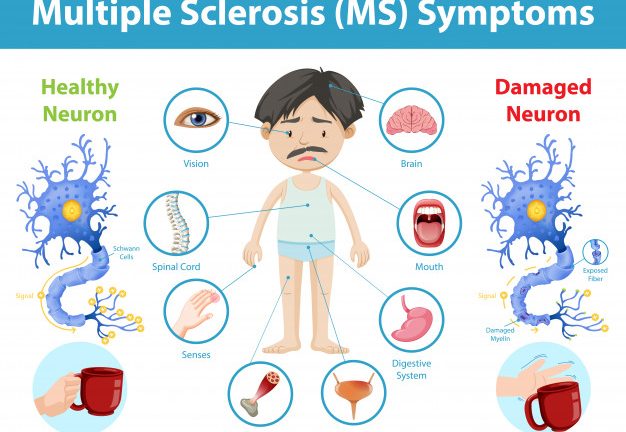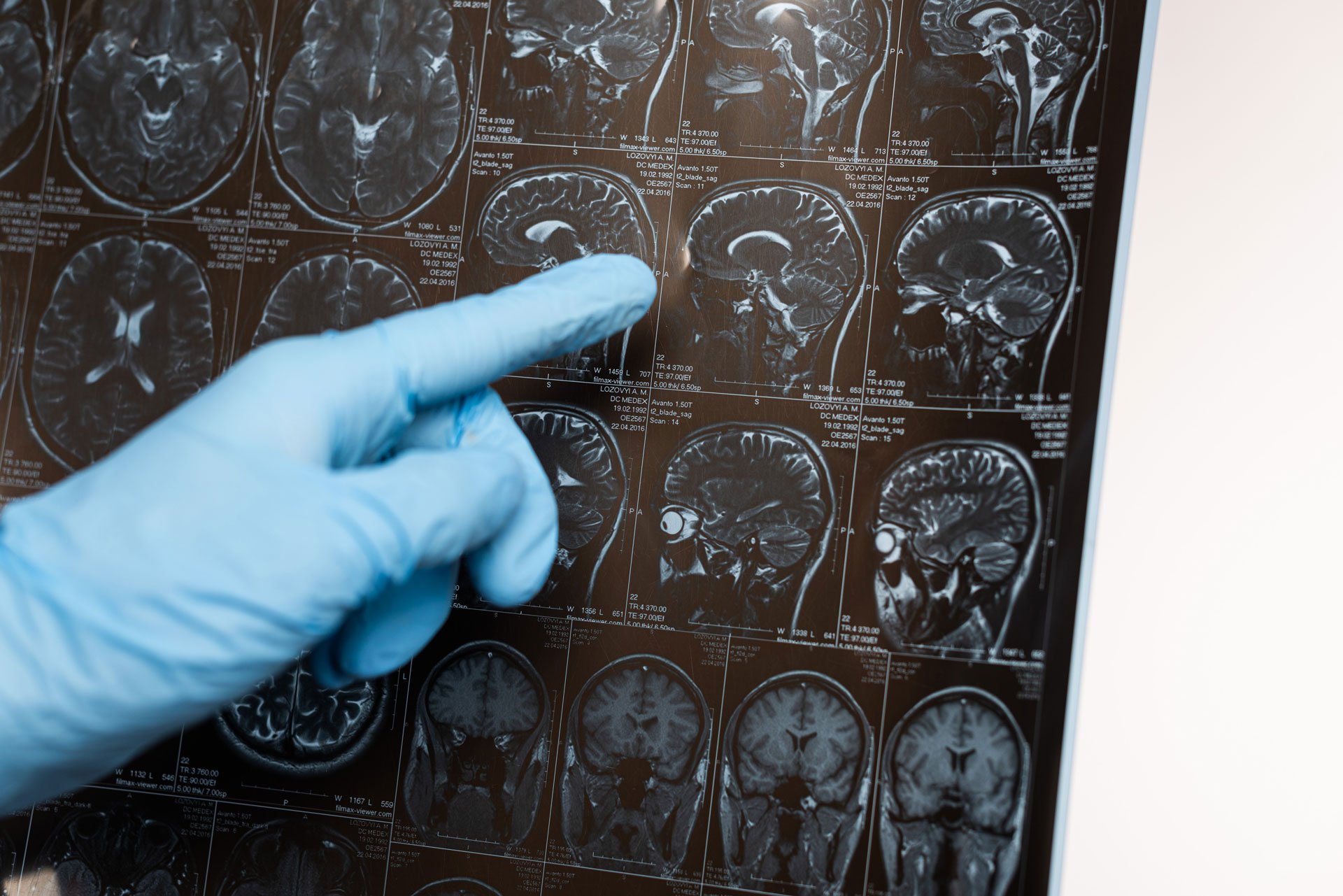Multiple Sclerosis (MS) is a complex and often unpredictable neurological condition that affects millions of people worldwide. It occurs when the immune system mistakenly attacks the protective sheath covering nerve fibers, leading to communication disruptions between the brain and the rest of the body. For those living with MS, the journey can be fraught with physical, emotional, and cognitive challenges.
Navigating everyday life with this disease requires resilience and a deep understanding of its intricacies. This blog aims to provide a comprehensive look into MS, exploring how it affects individuals and the significance of informed treatment strategies. By delving into the latest research and therapeutic options, we strive to empower those affected by MS with the knowledge necessary to manage their condition effectively and improve their quality of life.
Understanding Multiple Sclerosis: What is MS and How Does it Affect the Body?
Multiple Sclerosis (MS) is a chronic autoimmune condition that primarily impacts the central nervous system (CNS), which includes the brain and spinal cord. In MS, the immune system erroneously targets and damages the myelin sheath, a protective layer that surrounds nerve fibers. This damage disrupts the efficient transmission of electrical signals between the brain and the rest of the body, leading to a range of neurological symptoms.
The deterioration of the myelin sheath can cause a variety of symptoms, which may differ significantly from one person to another. Common manifestations include muscle weakness, numbness, vision problems, fatigue, and difficulties with coordination and balance. Some individuals may also experience cognitive challenges, such as memory or concentration issues, alongside emotional shifts like depression or anxiety.
The progression and severity of MS can vary, with some people experiencing mild symptoms that require little intervention, while others might face more debilitating effects that impact daily activities. Understanding the nature of MS is crucial for managing its symptoms and improving quality of life. Despite the absence of a cure, various treatment strategies aim to slow disease progression and manage symptoms effectively, offering hope and resilience to those affected.
Related: Finding a Headache Doctor in Lutz, Florida: Top Tips
Identifying the Symptoms: Recognizing the Early Signs and Progression of MS

Identifying the early symptoms of Multiple Sclerosis (MS) is crucial for timely management and intervention. MS can manifest in various ways, with symptoms differing significantly among individuals. Early detection often hinges on recognizing subtle signs, which can initially be mistaken for other conditions.
Common early symptoms of MS include:
- Vision Problems: Issues such as blurred or double vision, often due to optic neuritis, may be among the first noticeable signs.
- Numbness and Tingling: These sensations, usually in the face, arms, or legs, occur due to nerve damage.
- Fatigue: An overwhelming, unexplained tiredness that doesn’t improve with rest.
- Muscle Weakness or Spasms: Often affecting mobility or causing difficulties in maintaining balance.
- Bladder and Bowel Issues: Problems with control can emerge early in the disease.
- Cognitive Changes: Memory lapses, concentration difficulties, or slower thinking processes.
As MS progresses, symptoms can become more severe and affect daily activities. Individuals might experience increased frequency of symptoms, longer durations, and the addition of new symptoms. The progression can vary greatly; some may have long periods of remission, while others might see a steady decline. Recognizing these patterns early on can lead to better management strategies and an improved quality of life.
Related: Transient Ischemic Attack (TIA): Warning Signs and Preventive Measures
The Diagnostic Journey: How MS is Diagnosed and What to Expect
Embarking on the diagnostic journey for Multiple Sclerosis (MS) involves a series of evaluations and tests to accurately identify the condition. The process can be complex due to the variability of symptoms, which often overlap with other neurological disorders.
Key steps in the MS diagnostic process include:
- Clinical Evaluation: A neurologist will begin with a thorough review of your medical history and a detailed neurological examination to assess symptoms and rule out other conditions.
- Magnetic Resonance Imaging (MRI): This imaging test is crucial for detecting lesions or scars on the brain and spinal cord indicative of MS.
- Lumbar Puncture (Spinal Tap): A sample of cerebrospinal fluid may be taken to check for specific proteins associated with MS, helping to confirm the diagnosis.
- Evoked Potentials Test: This test measures the electrical activity in the brain in response to stimuli, identifying any delay in nerve signal transmission.
- Blood Tests: While they cannot diagnose MS, blood tests help exclude other diseases with similar symptoms.
Understanding what to expect can alleviate some anxiety associated with the diagnostic process. Each step is designed to gather comprehensive information, ensuring an accurate diagnosis. Early identification of MS allows for timely treatment interventions, which are vital for managing symptoms and improving quality of life.
Related: Ask the Expert: Key Facts about Migraine
Exploring Treatment Options: Medications and Therapies for MS Management
When managing Multiple Sclerosis (MS), a comprehensive approach involving various medications and therapies can significantly improve quality of life. Treatment strategies focus on reducing relapses, managing symptoms, and slowing disease progression.
Here are some of the primary treatment options:
- Injectable Medications: Common injectables include interferons like Avonex®, Betaseron®, and Rebif®, which help reduce inflammation and slow disease activity. Copaxone® is another injectable option that alters immune processes involved in the pathogenesis of MS.
- Oral Medications: Options such as Tecfidera®, Gilenya®, and Aubagio® are taken orally to manage relapses and are often preferred for their convenience. Each has unique side effects, like stomach upset or heart-related issues, requiring regular monitoring.
- Infusions: Tysabri® and Lemtrada® are administered via infusion and are reserved for more aggressive cases of MS. These treatments can effectively reduce relapse frequency but come with risks like infections or autoimmune conditions.
- Corticosteroids: Used during acute MS flare-ups, high-dose intravenous corticosteroids help manage inflammation and shorten attack durations.
- Therapies: Physical and occupational therapies are crucial in maintaining mobility and independence, offering exercises and strategies to manage symptoms.
Each treatment plan is personalized, balancing efficacy with side effect profiles to support long-term management of MS.
Related: Preparing for Your Neurologist Appointment: Tips and Checklist
Lifestyle and Diet: Making Adjustments to Support Health and Well-being
When living with Multiple Sclerosis (MS), making strategic lifestyle and dietary adjustments can significantly support health and well-being. While these changes cannot cure MS, they can enhance quality of life by managing symptoms and potentially slowing disease progression. Here are key adjustments to consider:
- Adopt a Balanced Diet: Focus on a nutrient-dense diet rich in fruits, vegetables, lean proteins, and whole grains. Foods high in fiber and omega-3 fatty acids, like fish and flaxseeds, may help reduce inflammation.
- Commit to Regular Exercise: Engage in moderate physical activities such as walking, swimming, or yoga. Exercise can improve cardiovascular fitness, balance, and mood, while reducing fatigue.
- Maintain a Steady Sleep Schedule: Ensure you get enough sleep each night. A consistent sleep pattern can improve cognitive function and overall energy levels.
- Quit Smoking: If you smoke, quitting can reduce the frequency of relapses and slow MS progression. Smoking cessation is crucial for preserving neurological health.
- Limit Alcohol Consumption: Reducing alcohol intake can prevent additional strain on the nervous system and improve balance, which is often compromised in MS.
By implementing these lifestyle modifications, individuals with MS can better manage their condition and enhance their overall well-being.
Physical Therapy and Rehabilitation: Enhancing Mobility and Reducing Symptoms
Physical therapy and rehabilitation play a crucial role in managing Multiple Sclerosis (MS), helping to enhance mobility and reduce symptoms. For those living with MS, these strategies can significantly improve daily functioning and quality of life. Here are key physical therapy strategies to consider:
- Strength Training: Engaging in exercises that build muscle strength can help combat weakness often associated with MS. Strength training helps maintain mobility and endurance.
- Balance Exercises: Activities that focus on improving balance can prevent falls and enhance coordination. These exercises are crucial for maintaining independence in daily activities.
- Stretching Routines: Regular stretching can alleviate muscle stiffness and spasms, common issues in MS, promoting flexibility and comfort.
- Aquatic Therapy: Water-based exercises can provide a low-impact workout that reduces strain on joints while improving muscle function and overall well-being.
- Aerobic Exercise: Incorporating aerobic activities like walking or cycling can boost cardiovascular health and elevate mood, helping to manage fatigue.
For comprehensive care, consider reaching out to the Center for Neurology in Lutz, Florida. Dr. Kavita Kalidas, a board-certified neurologist and UCNS-certified headache specialist, is dedicated to providing personalized care. Through tailored rehabilitation programs, individuals with MS can achieve their health goals and enhance their lifestyle.

